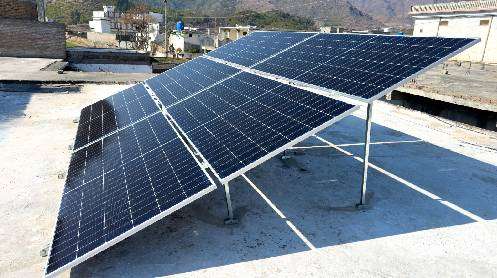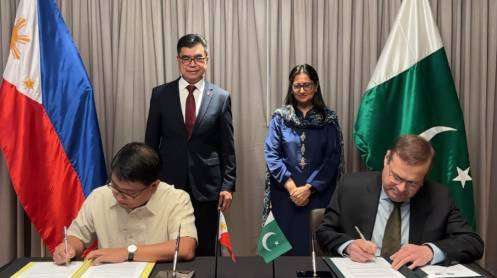ISLAMABAD: Rooftop solar has become a vital lifeline for millions of Pakistanis grappling with soaring power bills and frequent blackouts. But the rapid shift to clean energy is now straining the government’s ability to repay mounting power sector debts, Bloomberg reported Friday.
Pakistan’s power model relies on buying electricity from generators and selling it to consumers. Yet chronic inefficiencies mean sales are made at a loss — a problem worsened as households and businesses increasingly generate their own power. Declining collections threaten repayments to key creditors, including China.
In response, policymakers are weighing unpopular reforms. Authorities have already imposed levies on solar panel imports — initially proposing an 18% tax before halving it after public backlash. Another option under consideration is reducing net-metering rates paid to households that sell surplus power back to the grid. The proposal reached the Prime Minister’s Office but was paused by PM Shehbaz Sharif amid growing opposition.
Despite government pushback, Pakistan has quietly become the world’s third-largest solar panel importer, bringing in $1.5 billion worth this year, according to BloombergNEF. Analysts estimate 25 gigawatts of rooftop capacity — installed largely without state support — compared to the national grid’s 50 gigawatts. Imports of batteries are also rising, projected to grow from 1.25 gigawatt-hours in 2024 to 8.75 GWh by 2030.
“Pakistan didn’t plan its solar revolution — it just happened,” said Khalid Waleed, research fellow at the Sustainable Development Policy Institute. “We are stuck in a vicious cycle: either increase coal plant utilisation or retire and repurpose them.”
The country recently signed its largest-ever power sector debt restructuring worth Rs1.2 trillion ($4.2 billion) with 18 banks. Yet, experts believe solar adoption will continue to surge as panel prices fall, making systems affordable for middle- and lower-income households, especially in rural areas.
“The defection from the grid will continue unless we revise our solar policy,” warned Muhammad Ali, member of the PM’s energy taskforce. “The government must create new demand to ease mounting pressure on an already fragile power system.”







